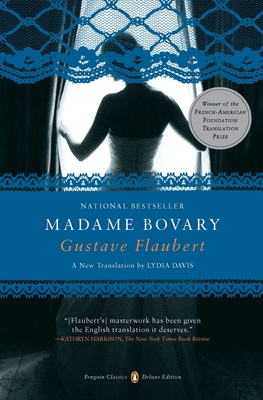




Tess of the d'Urbervilles is a novel about a poor young woman named Tess Durbeyfield whose father sends her to work for the rich Stoke-d'Urberville family, to whom he mistakenly believes they are related.
Alec Stoke-d'Urberville rapes Tess. She returns home, where she gives birth to a child who soon dies. Tess becomes a milkmaid at the Talbothays Dairy, where she falls in love with Angel Clare, a young intellectual she met years before. On their wedding night, Angel learns about Tess's past and abandons her. Angel leaves for Brazil, then returns to find that Tess has killed Alec. Tess is arrested and hanged.


A fresh and vivid translation of Flaubert's influential bildungsroman
Gustave Flaubert conceived Sentimental Education, his final complete novel, as the history of his own generation, one that failed to fulfill the promise of the Revolution of 1848. Published a few months before the start of the 1870 Franco-Prussian War, it offers both a sweeping panorama of French society over three decades and an intimate bildungsroman of a young man from a small town who arrives in Paris when protests against the monarchy are increasing.
The novel's protagonist, Frédéric Moreau, alternates between aimlessness and ambition as he searches for a meaningful life through love affairs and republican politics. Flaubert's narrative includes scenes of high drama, as scattered protests across Paris swell into revolution, and quiet moments of self-aware romanticism, crafting a story that possesses the sweep and scope of a historical novel combined with deep emotion and scandalous intimacy. Suffused with tragedy and the poignancy of lost chances and wasted lives, Sentimental Education is sharpened by satirical observations of what Flaubert condemned as the Second Empire's endemic hypocrisy and willful blindness.
This vibrant, new translation by Raymond N. MacKenzie includes an extensive critical introduction and annotations to help the modern reader appreciate Flaubert's achievement. Sentimental Education intertwines the personal, the intimate, and the subjective with the political, social, and cultural, embedding Frédéric's story in the larger arc of what Flaubert saw as France's decline into mediocrity and imbecility in its politics and manners.











In Flaubert's own words, the novel is a kind of encyclopedia made into farce . . . A book in which I shall spit out my bile. At the center of this book are Bouvard and Pécuchet, two retired clerks who set out in a search for truth and knowledge with persistent optimism in light of the fact that each new attempt at learning about the world ends in disaster.
In the literary tradition of Rabelais, Cervantes, and Swift, this story is told in that blend of satire and sympathy that only genius can compound, and the reader becomes genuinely fond of these two Don Quixotes of Ideas. This new translation also includes Flaubert's Dictionary of Received Ideas.


OEuvre classique de la littérature française du XIXe siècle, Madame Bovary de Gustave Flaubert suit Emma Bovary, la femme d'un médecin qui se lasse de son existence dans une petite ville et se tourne vers des liaisons adultères, des fantaisies romantiques et des dépenses extravagantes pour s'échapper. Son terrible sort et sa ruine financière sont le résultat de sa quête inébranlable de passion et d'ambitions irréalisables. Les limites de la société bourgeoise et les dangers des besoins non satisfaits sont mis en évidence par la prose minutieuse et la profonde perspicacité psychologique de Flaubert. L'ouvrage est salué pour son analyse critique du matérialisme et du romantisme ainsi que pour son ton réaliste.
